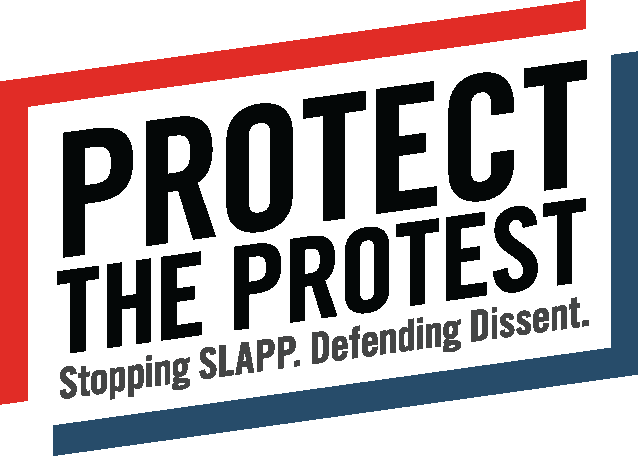Texas Should Leave Its Anti-SLAPP Law Alone
Protect the Protest member org, Electronic Frontier Foundation wrote this important blog post about the Texas anti-SLAPP law that's under threat. See the original post here.
The Texas Citizens Participation Act, or TCPA, has been one of the strongest laws in the nation protecting citizens against lawsuits intended to silence or punish individuals who speak up on public matters. But HB 2781, a bill making its way through the state's legislature right now, would needlessly undercut the protections Texans have enjoyed for more than a decade.
Sometimes lawsuits are filed to chill speech or harass people, rather than resolve legitimate legal disputes. These types of censorious lawsuits have been dubbed Strategic Lawsuits Against Public Participation, or SLAPPs. Those who bring SLAPPs hope that the time and money people need to defend themselves against the claims—and the stress that results—will intimidate them into silence. Anti-SLAPP laws such as the TCPA protect people from this kind of harassment. For example, thanks to the TCPA's protections, a Texas court in 2016 dismissed a $1 million lawsuit that a pet-sitting company filed against a Dallas couple just for leaving the business a one-star Yelp review.
Effective anti-SLAPP laws like the current TCPA allow judges to quickly review whether someone's been hit with a lawsuit for speaking out on a matter of public concern. During that time, other court proceedings are put on hold. If it’s determined that the case is a SLAPP, the lawsuit gets thrown out and the SLAPP victim can recover their legal fees. HB 2781 would remove this automatic stay if a motion to dismiss a SLAPP suit is found to be frivolous, untimely, or subject to a statutory exemption.
This is a mistake. Courts, after all, are not always right. Recent Texas Supreme Court cases such as Kinder Morgan v. Scurry County and Montelongo v. Abrea show that both trial courts and courts of appeal considering anti-SLAPP motions can easily decide timeliness issues incorrectly.
As EFF noted in its letter opposing the bill, the existing automatic stay is key to the TCPA’s protections. Otherwise, a person trying to use the law's protections to avoid unnecessary legal costs must instead simultaneously juggle not only the SLAPP suit itself but also the anti-SLAPP motion. This would be a tremendous waste of time and judicial resources.
A number of groups representing many different interests publicly oppose HB 2781, including Yelp, several news media outlets and organizations, the Better Business Bureau, and a coalition of groups including: Institute for Free Speech, ACLU of Texas, Americans for Prosperity-Texas, Center for Biological Diversity, Competitive Enterprise Institute, Foundation for Individual Rights and Expression (FIRE), Institute for Justice, National Coalition Against Censorship, National Right to Life, National Taxpayers Union, PEN America, Public Participation Project, The Authors Guild, and the True Texas Project.
EFF stands with these groups against HB 2781. Texas should not change an important law protecting people's speech rights in favor of those who use the courts as a tool for intimidation.
